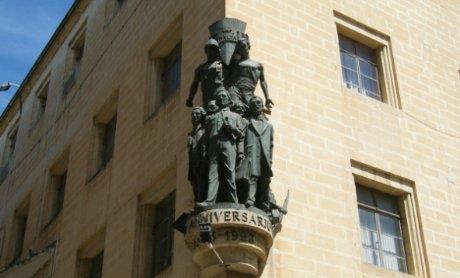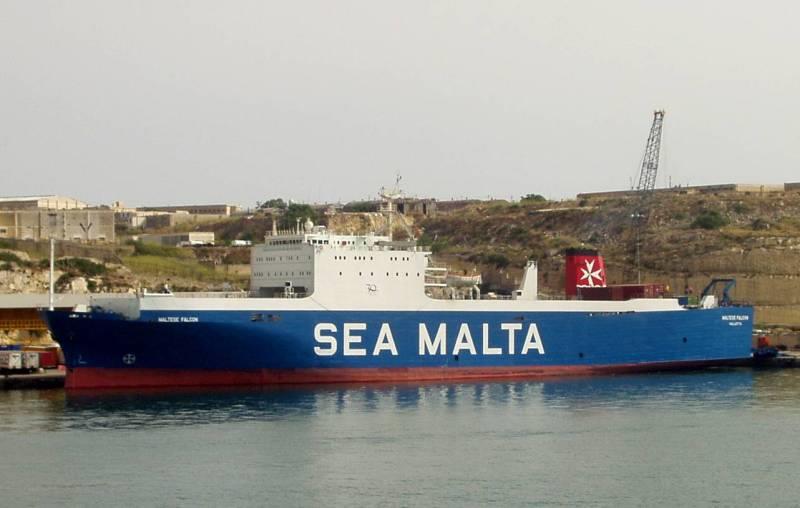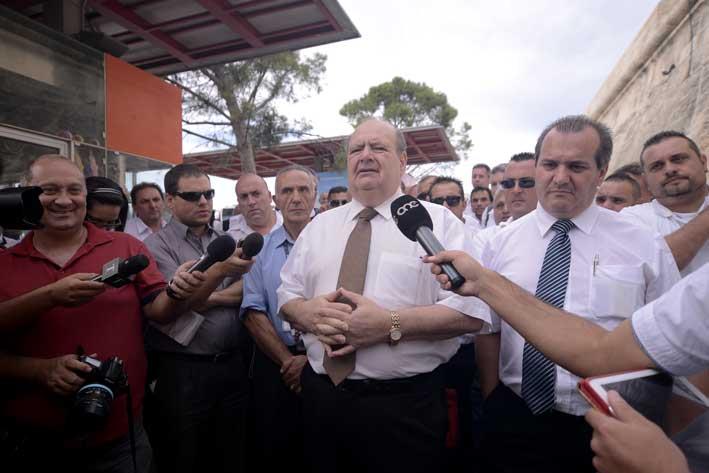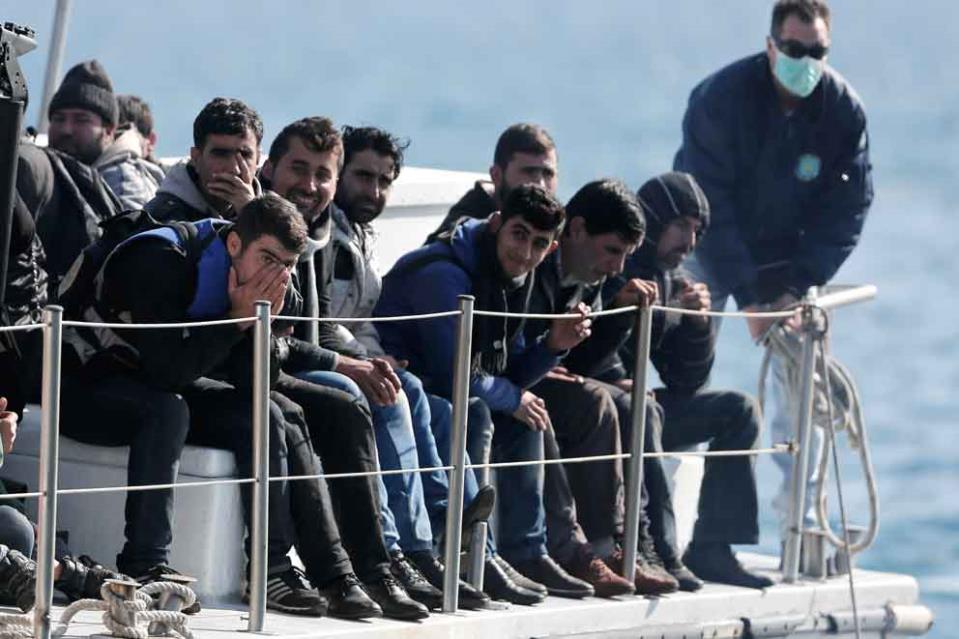Tony Zarb, a household name as far as Maltese trade unionism is concerned, will end his long career with the General Workers’ Union at the union’s general conference on 8th October. He made his debut in trade unionism in 1981.
In an interview with The Malta Independent on Sunday, Mr Zarb insists that the GWU is apolitical and while the union once had ties to the Labour Party, those times are no longer.
His words about the Nationalist Party are, however, far less favourable: “If it was up to the PN, it would have eliminated the GWU.
“One thing I would have done is not believe a word the Nationalist Party said about the closing down of the shipyards,” Mr Zarb said when asked what he would have done better if he had a second chance. “First it had assured the union and its workers that the operation would not be shut down, only for the government to turn around and do so anyway.

“What I can say is that in the light of all this, we managed to keep the union on its feet and survived the 25-year tenure of a hostile PN government.”
So is it merely a perception that the union organises protests under PN governments, and holds itself back from causing ‘trouble’ to Labour governments?
“The ties between the GWU and the Labour Party were there but that time has gone and it hasn’t come back,” he insists.
“I have no qualms saying that our union is a leftist one,” he continued, adding that foreign leftist unions also work in some way or other with their country’s Labour Party. “So we did not do anything out of the ordinary to have worked with Labour,” Mr Zarb pointed out.

The GWU had severed its statutory ties with the MLP, but it is still perceived to be strongly linked to the Labour Party, a stand that is always given particular attention by the PN media.
Ironically, while the interview with Mr Zarb was being conducted, a bus strike ordered by the GWU was underway. We asked him whether the bus strike will be the last strike ordered by him since he is nearing close to retirement, to which he replied laughing: “I hope so.”
Mr Zarb points out that he was among those who signed a motion during the national council to cut the ties it had with the Malta Labour Party after the “scope behind our initial ties was reached”. This motion was presented in the early 1980s.
The intention, he said, was to shift Malta from that of a military base to an industrial one.
It was a time when social services were being created and the GWU gave a helping hand so that more social benefits were created, he said.

Sea Malta and the Fairmount contract
He also referred to the case of the national shipping company Sea Malta, which was also shut down. The company was established on 10 November 1973 during the tenure of the Labour government led by Dom Mintoff which had the majority of the shares in the new company. But its operations were shut down in 2006 under a PN government.
But this newsroom pointed out to Mr Zarb that if an entity is not viable any longer, it does not make any sense that it continues to operate.
On this point, he said: “In the case of the ship building, we were going to trim it down in such a way that it would be viable through the Fairmount contract.
“I have no doubt the aim of the Fairmount contract was an excuse to close the ship building down,” he claimed.
The Fairmount conversion contract cost the Malta shipyard over €36 million and was acknowledged by the then PN government as the main reason for the shipyards’ failure to achieve financial sustainability since its debt was cancelled in 2003. This eventually led to its closure.

‘Issa Daqshekk’ (Enough is enough) campaign was a ‘great success’
When the Nationalist Party ruled in 2000, in Prime Minister Eddie Fenech Adami’s time, the GWU had organised an Issa Daqshekk campaign after it declared that it had had enough of the tax-related measures the then government was imposing on citizens in the budget.
Many associate the campaign with Mr Zarb. When asked if the union achieved what it was after, Mr Zarb said that the campaign was highly effective.
“The protest started at 9am and the union was overwhelmed by the number of people who took to the streets to protest along with the union.
“Nobody could believe their eyes that so many people turned up for the protest.
“We managed to hold back a then PN government from continuing to burden the people with further taxes.
“In fact, in the following budget, the PN in government reduced its tax-related measures,” he explained.
This, he said, showed that the campaign itself was very effective and kept the Nationalist Party on its toes.

Security personnel being discriminated against
As regards precarious work, Mr Zarb admitted that more needs to be done in this area but something is now being done to tackle the issue thanks to the GWU’s constant pressure.
He recounted that eight years ago, on 5th October, he had started his fight against precarious working conditions.
“At the time it was about construction workers. They were foreign workers, paid little for their work and had miserable conditions. The workers were also ordered to sleep on site.
“The employers themselves would call the police and report that the workers were working illegally two days before they were paid their wage for a month’s work.
“The police would then swoop in and order them out and as a result the workers would lose a month’s pay with the employer pocketing the money instead,” he said.
Now it’s about security personnel and employees working in the cleaning industry.
It’s not right for security personnel within the same company to earn more than others simply because some security are rendering a service to the government while others who are serving the private sector are getting a lower rate.
This, he said, needs to change and the private sector needs to come in line with the same contractual rates offered by the government. He said the Works Regulations Order should be reviewed, which is what the union is requesting.

Zarb’s biggest career achievement or, rather, satisfaction
When asked what he feels was his biggest achievement, he said that his biggest satisfaction was when his own union ordered a strike at Air Malta and an infant needed to be urgently operated upon in the UK.
“When we learnt about the situation, I stopped the strike. The boy was flown to the UK to be operated upon,” Mr Zarb said. He said the plane arrived in the UK at 11am and the child was operated on at 1 pm, as planned.
Mr Zarb said some 18 years later, he happened to be in Birzebbuga when a youth approached him and thanked him for saving his life.
“At first I told him I didn’t know who he was but he soon reminded me. He told me that he was the child who was sent to the UK to be operated on at a time when Air Malta was on strike.”

Unions end up in the news only when they order a strike, protest
He said that unfortunately all unions end up in the news when they organise a protest or strike.
Mr Zarb explained that the union signs plenty of collective agreements and overcomes major challenges on behalf of workers but such positive aspects never make it in the news. It is only when the union orders a strike or protests in the streets that it makes headlines, he continued.
Asked what change he has seen during his career with the union, Mr Zarb said that 25 years ago “if the union had held meetings with social partners as it does today, members of the union would have rebelled and taken it against us.

Today, he said, both the employer associations and unions representing employees consider themselves social partners, which leads to dialogue between the two sides and which in turn leads to more effective results.
While on the subject, we asked Mr Zarb whether meetings held with the Malta Council for Economic and Social Development (MCESD) are having their desired results, he replied in the negative. MCESD is an advisory council that issues opinions and recommendations to the Maltese government and is comprised of social partners.
“No, it is not, there’s room for improvement. There are issues which need to be discussed during the MCESD meetings. Let’s take the bus strike for instance. Such an issue is not discussed within the MCESD, despite the fact that it’s an important national issue we are on about,” Mr Zarb said.
He urged the MCESD to discuss such issues in future.
Asked whether social partners are pulling the same rope, he said the fact that social partners sit together and discuss issues under one roof makes it easier to negotiate together in future, referring to the employer v employee aspect.
“The fact that we built a relationship makes it easier for us to negotiate and reach an agreement,” Mr Zarb said.

PM’s comments on migrants in Marsa ‘welcomed’
He said the GWU welcomed the Prime Minister’s comments that the government would start looking into the fact that migrants are hopping onto trucks and vans and being exploited.
He said the GWU will lend a hand to ensure this practice stops.
Questioned whether this was being done because migrants were taking the work of Maltese people by offering their services for less money, he cited an example: “People from the Eastern Bloc are taking up jobs and nobody knows what their conditions of work are.
“I am sure there are Maltese people who want to work in the hospitality industry but surely not under the same conditions as those from the Eastern Bloc,” he said.

Enemalta: Is government still the major shareholder
Mr Zarb said that the government simply roped in a partner. “The government is still the major shareholder of Enemalta. There are places which were fully privatised but Enemalta is not one of them, surely.”
He denied that workers are facing uncertainty. “We had a silent revolution when we decided which workers were needed at Enemalta. The ones who were no longer needed were given government jobs with the same conditions they had at Enemalta, which kept all workers happy,” Mr Zarb said.
Incoming secretary general
Mr Zarb said he assured Josef Bugeja, who will replace him next week that he wishes that he (Bugeja) will be one of the best secretary generals the union ever had.
“I have no doubt Mr Bugeja will get there; we have been working together for a year as part of the transition period. It wasn’t a case of simply Mr Bugeja replacing me once I called it a day but for me to exit little by little and for him to gradually take over,” he said.
When asked if he would remain active within the union, Mr Zarb said: “I will be there to support Mr Bugeja when and if the need arises.”